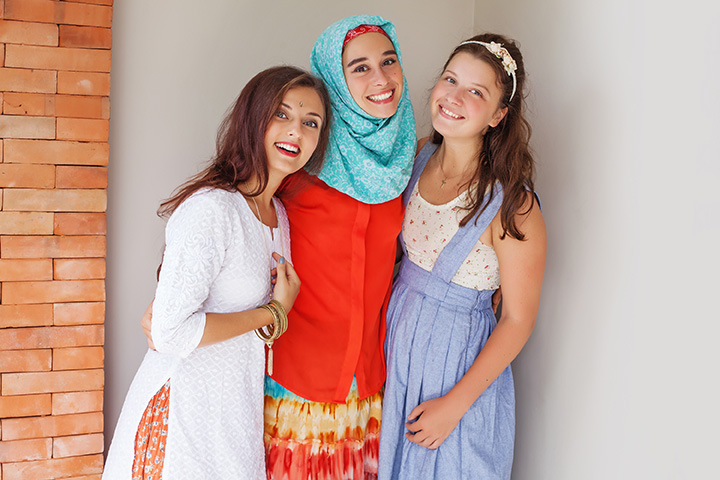Chicago students of different faiths are continuing a tradition that’s drawing them together through the Olive Tree Arts Network, a nonprofit that uses creative expression as a catalyst for cross-cultural dialogue.
About 150 students from eight of the city’s religious day schools—including Muslim, Catholic and Jewish schools—come together each year to participate in a shared curriculum known as Poetry Pals, run through the arts network, The Chicago Tribune reports.
The program tasks pre-teen students with working together to create wacky stories based on their religious customs, with the underlying goal of forming stronger bonds between students of different faiths, Olive Tree director Ilene Siemer told the news site.
“This is a really important stage in kids’ lives, because they don’t really have pre-seeded notions of each other yet,” Siemer said. “So we’re able to effectively convey how much we all have in common without having to deal with any of the baggage that many adults may carry.”
Students with Bernard Zell Jewish Day School and the Muslim Community Center Academy headed to the Catholic St. John Fisher School earlier this year to learn about the Catholic faith. In January, they went to the Muslim Community Center Academy, where students did a skit about a gang of Irish dancing squirrels cutting down a Christmas tree, and listened to Muslim students explain the basics of the Islamic faith, the Tribune reports.
The events offer students a way to have fun with their peers from other religions, while also sharing the philosophy, customs, and traditions of their own faith.
“I feel like I’ve gotten to teach (other students) a lot more about our religion, and how even though there are differences between our religions, the differences are very small and we can all still be friends,” said 11-year-old Ibrahim, one of five students who made a presentation about his religion. “I wish more people could understand that Islam is a religion of peace more than anything else.”
Siemer said a major objective of the program is to provide students a “safe place to ask questions” about different faiths and to quell prejudices before they evolve into something more dangerous.
The religious day schools in Chicago and elsewhere offer a unique space for students to form strong identities, and to learn from others with different beliefs.
The Institute for Advanced Studies in Culture at the University of Virginia fielded a study of ten sectors of schooling—including Catholic, Jewish, and Islamic schools—to examine how those institutions form character and citizenship.
Charles Glenn, lead researcher of Islamic schools, wrote about the experience in The Content of Their Character, currently available for preorder:
One student expressed appreciation that the Islamic school “feels actually kind of safe. You know everyone’s just like you, you’re not the outcast or seen as different or any of that. It’s really like, it’s a healthy environment and really just safe.”
The Islamic school provides a safe place for identity formation. The Olive Tree Arts Network extends that safe environment by creating a space where students can build relationships with kids of other faiths through a shared creative experience.
In addition to convening middle-schoolers for these creative events, the network also offers a simple infographic to help individuals of other faiths—or no faith—to understand the core beliefs and influential figures in Islam, Catholicism, and Judaism.

